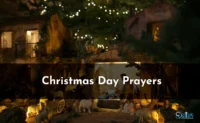Location: On the Commandments of God and of the Church > The Precepts of the Church > The Second Precept of the Church
Q1: What is commanded by the Second Precept of the Church in the words, To fast on the days prescribed?
A1: By the words, To fast on the days prescribed, the Second Precept of the Church commands us to observe the fast: (1) During Lent; (2) On certain days of Advent, where this is prescribed; (3) On Ember Days; (4) And on certain Vigils.
Q2: In what does fasting consist?
A2: Fasting consists in taking but one meal a day and in abstaining from prohibited kinds of food.
Q3: On fast days may a collation be taken in the evening?
A3: Through the concession of the Church, a collation may be taken in the evening on fast days.
Q4: What is the good of fasting?
A4: Fasting serves to dispose us better to prayer; to do penance for past sins; and to preserve us from sinning again.
Q5: Who are bound to fast?
A5: Every Christian over twenty-one years of age who is not dispensed, or excused for some good reason, is bound to fast.
Q6: Are those who are not bound to fast, exempt from all mortification?
A6: Those who are not bound by the obligation of fasting are not exempt from all mortification, because all are bound to do penance.
Q7: For what purpose has Lent been instituted?
A7: Lent has been instituted to imitate in some way the rigorous fast of forty days undergone by Jesus Christ in the desert, and to prepare us by penitential exercises to celebrate the feast of Easter devoutly.
Q8: Why has the Advent fast been instituted?
A8: The Advent fast has been instituted to prepare us to celebrate devoutly the Feast of our Lord’s Nativity.
Q9: Why has the fast of Ember Days been instituted?
A9: The fast of Ember Days has been instituted: (1) To consecrate each of the Four Seasons of the year by some days’ penance; (2) To beg of God the preservation of the fruits of the earth; (3) To thank Him for those already given us; (4) And to beseech Him to give good priests to His Church, the usual days for ordaining priests being the Ember Saturdays.
Q10: Why has fasting on Vigils been instituted?
A10: Fasting on Vigils has been instituted to prepare us to celebrate the principal Feasts devoutly.
Q11: What is forbidden on Fridays, and also on Saturdays where not dispensed?
A11: On Fridays, and also on Saturdays where not dispensed, it is forbidden to eat meat, except in case of necessity.
Q12: Why does the Church wish us to abstain from eating meat on these days?
A12: In order that we may do penance each week, and especially on Friday, in honour of the Passion, and on Saturdays in memory of the burial of Jesus Christ, and in honour of the Blessed Virgin. [From the Code of Canon Law of 1917, with the modifications Approved in 1949, (complete) abstinence only is to be observed on all the Fridays throughout the year. Fast and (complete) abstinence is to be observed on Ash Wednesday, the Fridays of Lent, Ember Fridays, the Vigils of the Assumption and Christmas, and Holy Saturday. Fast only (and partial abstinence) is to be observed on: all weekdays of Lent, Ember Wednesdays and Saturdays, and the Vigils of Pentecost and All Saints. On the days of fast, only one full meal is allowed. Two other meatless snacks, sufficient to maintain strength may be taken according to each one’s needs, but together they should not equal another full meal. Meat may be taken at the principal meal on a day of fast except on the days of complete abstinence. Eating between meals is forbidden, but liquids including milk and fruit juices are allowed. On holydays of obligation, except in Lent, there is neither fast nor abstinence. The laws of abstinence binds all who have completed their seventh year of age; the law of fasting binds all persons from the completion of their twenty first year until the beginning of their sixtieth. (The completion of the seventh year means the day after the seventh birthday). According to the 1983 Code of Canon Law, ‘All Fridays through the year and the time of Lent are penitential days and times throughout the universal Church. Abstinence from eating meat. . . is to be observed on Fridays throughout the year unless they are solemnities; abstinence and fast are to be observed on Ash Wednesday and [Good] Friday. All adults who have completed their fourteenth year are bound by the law of abstinence; all adults [from age 18] are bound by the law of fast up to the beginning of their sixtieth year.’ The Episcopal Conference can modify these general rules. In the United States, ‘Catholics are obliged to abstain from the eating of meat on Ash Wednesday and all Fridays during the season of Lent. They are also obliged to fast on Ash Wednesday and on Good Friday. Self-imposed observances of fasting on all weekdays of Lent is strongly recommended. Abstinence from flesh meat on all Fridays of the year is especially recommended to individuals and to the Catholic community as a whole.’ In Australia, ‘Abstinence from meat, and fasting, are to be observed on Ash Wednesday and Good Friday. On all other Fridays of the year the law of the common practice of penance is fulfilled by performing any of the following: (a) prayer, as for example Mass attendance, family prayer, .. . (b) self-denial, e.g. not eating meat, not eating sweets or dessert, . . (c) helping others, e.g. special attention to someone who is poor, sick, elderly, .. .’ Since a clarity and precision in a law helps for its fulfilment, the faithful are strongly recommended to follow the traditional rules, though only the recent regulations oblige under pain of mortal sin.]







Leave a Reply